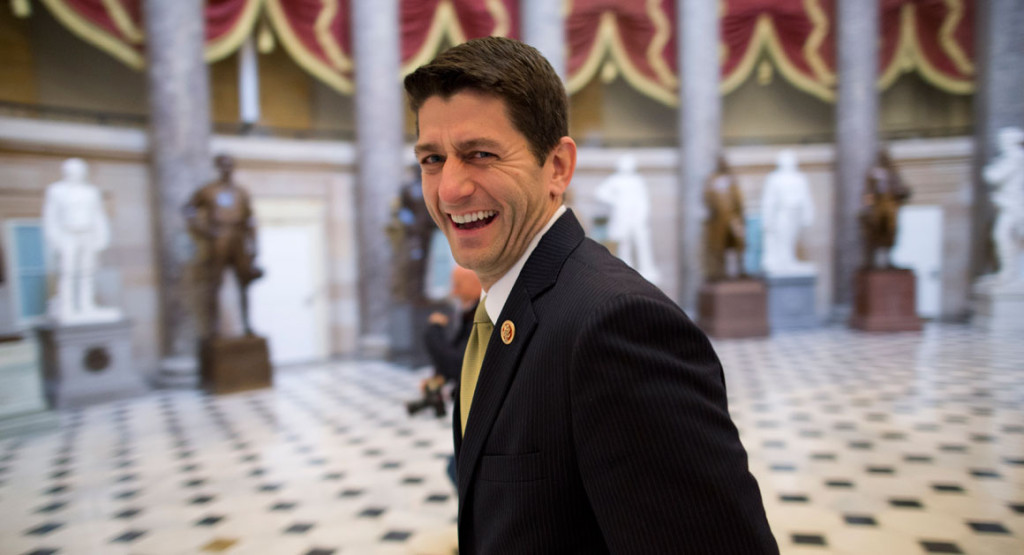
Answer: yes.
And definitely not.
The question arises as Ryan, the Wisconsin congressman and House Budget Committee chair, slides back into the news cycle in a major way for the first time since the defeat of the Romney-Ryan ticket last year. On Tuesday evening, in the full glare of the TV lights, there was Ryan holding forth with Washington state’s Patty Murray, his Senate Democratic Budget Committee counterpart. The two were front and center as they announced a budget deal, with Ryan setting out immediately afterwards to make his case everywhere from Mark Levin’s radio show to Greta Van Susteren’s Fox set.
Whatever else the Ryan-Murray budget does—busting spending caps, nibbling at entitlement reform, avoiding a government shutdown—Ryan says he made certain that it bears the classic Kemp trademark: no tax increases.
Kemp’s influence looms large over Ryan, from his support for policies ranging from tax cuts as a first principle to his larger belief in economic growth, free market (not crony) capitalism and a passionate belief in equal opportunity. “Jack Kemp was my mentor,” Ryan has said, having written speeches and policy papers for the late congressman and fellow would-be vice-president’s now-defunct think tank, Empower America. In an August 2012 profile in the New Yorker, he told reporter Ryan Lizza that Kemp, who died in 2009, “is what sucked me into public policy, public service, and politics. … He called it the battle of ideas, and I just really got into it.” One source told Lizza, “I got the impression that Jack Kemp became something of a second father.”
I, too, worked for Kemp, in my case at George H.W. Bush’s Department of Housing and Urban Development (HUD), where Kemp was secretary. It is safe to say that if one were exposed at close range to Kemp’s combination of ebullient personality and powerful message one could not help but emerge thinking of him as an intellectual mentor. Here was the guy who, in partnership with Ronald Reagan, imagined the Republican Party not as, in Reagan’s words, a “pale pastel” imitation of liberalism but rather as a “bold color” champion of conservative principle. Free markets, economic opportunity, a strong foreign policy designed to send the Soviet Union and Communism to the “ash heap of history” rather than co-exist with it—these were Kemp hallmarks. Along with a consistent and repeated outreach to minorities, Kemp’s message never wavered, no matter his audience.